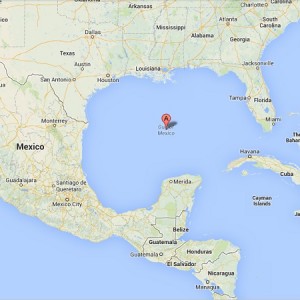
A report released by the US Department of the Interior’s Bureau of Safety and Environmental Enforcement (BSEE) said that deaths in the Nov. 16, 2012 incident “were caused by a number of decisions, actions and failures by Black Elk and contractors retained by Black Elk while conducting construction operations.”
The investigation results shifted the blame from the oil workers, whose “poor training” was earlier cited as the cause of the accident by a third-party investigation commissioned contracted by Black Elk earlier this year.
“These failures reflect a disregard for the safety of workers on the platform and are the antithesis of the type of safety culture that should guide decision-making in all offshore oil and gas operations,” said BSEE Director Brian Salerno’s Nov. 4 statement that reached Manila on Tuesday.
“The tragic loss of life on the Black Elk facility highlights the fact that operators and contractors must be vigilant to safety hazards and risks during all types of operations,” said the BSEE chief’s statement.
Filipino workers Jerome Malagapo, 28, Avelino Tajonera, 48, and Ellroy Corporal, 42, were killed in the explosion while Antonio Tamayo, Reynaldo Dominguez and Wilberto Ilagan sustained serious injuries. The accident happened during welding and construction work on the platform.
In welcoming the investigation results, the Philippine Embassy in Washington D.C. said the report effectively cleared the Filipino workers after they were initially held accountable in the independent investigation commissioned by Black Elk, which virtually absolved the firm of responsibility for the accident.
The platform operator, the embassy said, had earlier claimed that the workers’ poor English skills were a factor in the accident, a claim that BSEE debunked in its report.
“We are greatly relieved to learn from the official BSEE investigation report that the Filipino workers were not responsible for the tragedy, contrary to earlier assertions made by Black Elk Energy President John Hoffman who had wrongfully attributed the accident to our workers,” Ambassador Jose Cuisia Jr. said in a statement.
“It had always been our position that our workers could not have been responsible for the accident and that they were actually the victims of a terrible accident that could easily have been prevented…. The Filipino workers who were on board the ill-fated platform all had extensive experience in offshore oil platforms in the Philippines, the Middle East, Europe and other parts of the world,” Ambassador Cuisia said, adding that the workers were fluent in English.
The BSEE report, as Salerno stated in his statement, pointed to several lapses of the platform operator and its contractors, including: “no hazard identification; conducting ‘hot work’ without taking required safety precautions; failure to isolate hydrocarbons inside an oil tank; ineffective communication among contractors; and a climate in which workers feared retaliation if they raised safety concerns.”
The BSEE panel recommended that Black Elk and other oil platform operators in the area conduct a “safety stand down… to discuss the events leading to the explosion and fire… and review proper safety procedures.”
RELATED STORIES:
‘Fatal oil rig blast in Gulf of Mexico caused by poorly trained Filipinos’
Filipino workers should not be blamed for US oil rig blast–officials